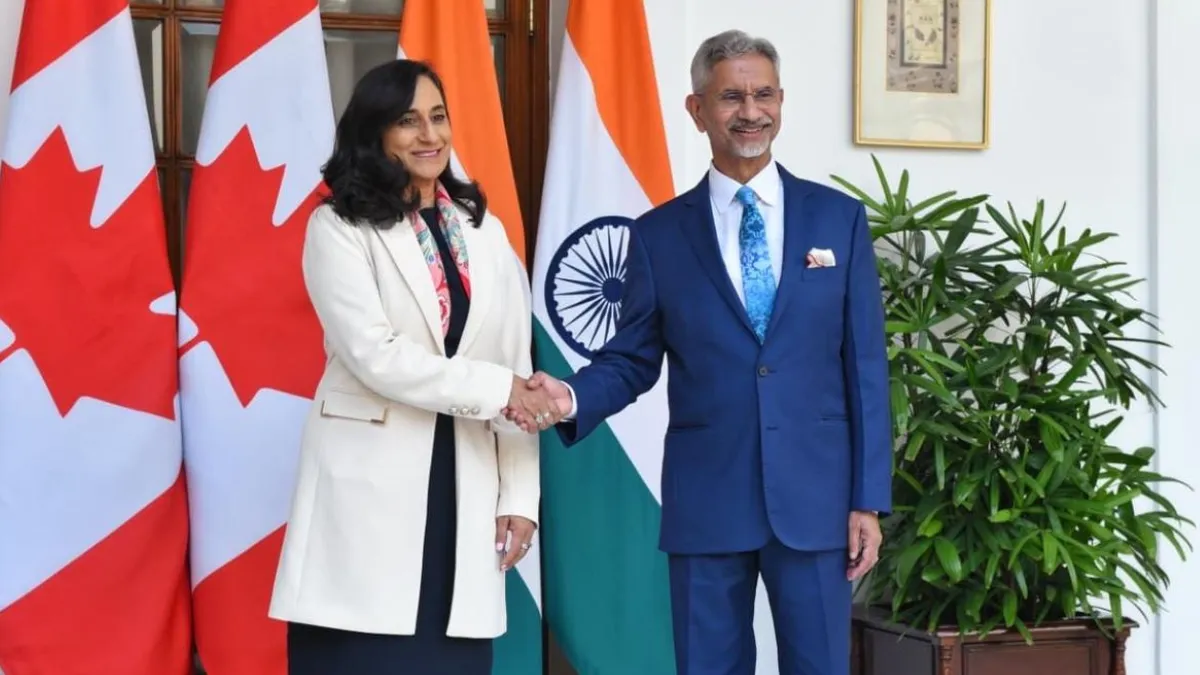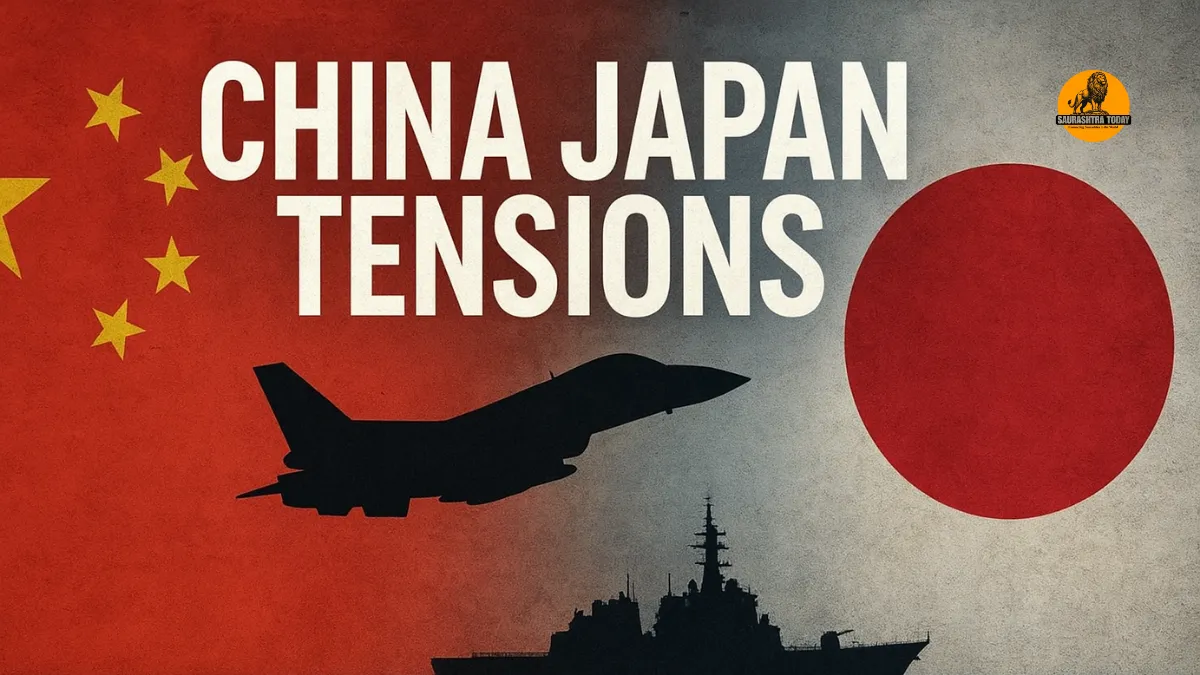October 13, 2025 – New Delhi, India – In a significant step towards strengthening bilateral ties, Canada and India have issued an officialCanada-India Joint Statement marking renewed momentum in their partnership. The announcement comes after a high-level visit by Canada’s Minister of Foreign Affairs, Honourable Anita Anand, to India from October 12 to 14, 2025, at the invitation of India’s Minister of External Affairs, Dr. Subrahmanyam Jaishankar.
This visit and the joint statement underscore the commitment of both nations to enhance cooperation across economic, strategic, environmental, and technological domains. The statement builds on guidance provided by the Prime Ministers of Canada and India during their meeting on the sidelines of the G7 Summit in Kananaskis, Canada.
Historical Context: Rebuilding Bilateral Relations
The Canada-India relationship has seen strategic ups and downs over the past years. Both countries have recognized the importance of restoring stability in their ties, focusing on constructive engagement and mutual respect. The joint statement reflects a series of carefully coordinated efforts to rebuild trust, emphasizing:
- Respect for democratic values and the rule of law.
- Strengthening people-to-people ties.
- Expanding economic complementarities.
Key initiatives preceding this statement include:
- Reinstatement of High Commissioners (August 28, 2025)
- National Security Advisers’ Meeting in New Delhi (September 18, 2025) to advance security cooperation
- Pre-Foreign Office Consultations between India and Canada (September 19, 2025)
- Foreign Ministers’ Interaction on the sidelines of the UN General Assembly (September 29, 2025)
These actions laid the groundwork for a comprehensive roadmap aimed at a stronger, balanced partnership.
Strategic Importance of the Canada-India Partnership
In a world characterized by geopolitical uncertainty and economic volatility, the Ministers emphasized that a resilient bilateral relationship between Canada and India is crucial. The renewed partnership is expected to:
- Enhance economic cooperation and investment opportunities.
- Mitigate vulnerabilities arising from shifting global alliances.
- Strengthen strategic stability in the international arena.
Both nations acknowledge that close collaboration is essential to navigate an increasingly complex global environment.
Economic Cooperation and Trade Initiatives
The joint statement highlights the remarkable growth in bilateral trade, which reached $23.66 billion in 2024, reflecting strong economic interdependence. Both nations have agreed to:
Expanding Business Collaboration
- Resume the Canada–India CEO Forum to bring together business leaders for actionable recommendations on trade and investment.
- Focus on priority sectors including clean technology, infrastructure, agri-food, and digital innovation.
- Convene the Forum alongside a senior-level trade mission in early 2026.
Ministerial-Level Trade Discussions
- Initiate discussions informed by current economic realities and strategic priorities.
- Strengthen policies that facilitate trade in goods, services, and investment.
Regional Engagement
- Recognize the important contributions of Canadian provinces with representation in India.
- Acknowledge the role of Indian states in advancing economic cooperation.
These measures aim to enhance job creation and sustainable growth while leveraging the strengths of both economies.
Climate Action and Environmental Cooperation
Both countries emphasized their shared commitment to environmental sustainability and climate action. Key initiatives include:
- Bilateral cooperation on climate protection, biodiversity conservation, and pollution reduction.
- Exchange of expertise in renewable energy, decarbonization of heavy industries, plastic reduction, chemical management, and sustainable consumption.
- Joint efforts to link environmental goals with economic growth and employment opportunities.
Energy Cooperation: Towards a Sustainable Future
Energy transformation remains a central focus of the Canada-India partnership. The joint statement outlined plans to:
- Re-establish the Canada-India Ministerial Energy Dialogue with a detailed Action Plan.
- Promote trade in LNG and LPG, alongside investments in oil and gas exploration.
- Collaborate on low-carbon technologies including green hydrogen, biofuels, carbon capture, and electric mobility.
- Share best practices in electricity system management to enhance grid stability and renewable integration.
- Strengthen supply chains, policy frameworks, and market access in energy sectors.
- Advance discussions on civil nuclear cooperation and uranium supply.
- Launch the Critical Minerals Annual Dialogue in Toronto in March 2026 to support energy security.
This multi-pronged approach aims to ensure energy security, climate responsibility, and sustainable economic growth for both nations.
Science, Technology, and Innovation
Recognizing the transformative potential of technology, both countries have committed to enhanced collaboration in science and technology:
- Relaunch the Joint Science and Technology Cooperation Committee.
- Expand access to AI and digital infrastructure through partnerships.
- Encourage Canadian AI companies to participate in India’s AI Impact Summit in February 2026.
- Explore cooperation in digital public infrastructure and emerging technologies.
These efforts are intended to foster innovation, drive inclusive growth, and maintain global competitiveness.
Also read: Trump announces 100 tariff on China Sparks $18 Billion Crypto Market Crash
Agriculture and Food Security Cooperation
Both countries stressed the importance of collaboration in agriculture to ensure food security and sustainable growth. Areas of focus include:
- Developing stable and sustainable supply chains.
- Improving agri-value chains through technology exchange and best practices.
- Enhancing nutritional security and recycling agri-waste for energy and organic fertilizers.
- Promoting climate-resilient agriculture and innovative food systems.
This cooperation aims to increase farmers’ incomes while supporting long-term sector sustainability.
Strengthening People-to-People Links
The joint statement highlighted that people-to-people connections are central to long-term bilateral collaboration. Initiatives include:
- Enhancing cooperation in education, tourism, cultural exchange, and professional mobility.
- Expanding research partnerships in emerging technologies like AI, fintech, and cybersecurity.
- Strengthening Canadian academic presence in India through overseas campuses.
- Revitalizing the Joint Working Group on Higher Education to broaden academic networks.
Such engagement ensures mutual understanding and fosters enduring ties between the citizens of both nations.
Also read: Trump Modi: Strengthening the India-US Relationship Amid Strategic Talks
Institutional Strengthening and Capacity Building
To implement the ambitious roadmap, both countries agreed to:
- Strengthen institutional capacities of High Commissions and Consulates.
- Deploy expertise across economic, political, defense, and technology domains.
- Facilitate cooperation that rebuilds trust and enhances bilateral engagement.
These steps will ensure that the vision outlined in the Canada-India Joint Statement translates into practical outcomes.
Collaboration on Global Issues
As the bilateral relationship deepens, Canada and India have pledged to:
- Work together on multilateral platforms to promote effective and inclusive institutions.
- Address global challenges with joint action, reinforcing their shared democratic and ethical values.
- Promote regional and international stability through strategic coordination.
This collaboration aims to amplify the impact of both nations on the global stage while reinforcing bilateral priorities.
Also read: French Prime Minister Sébastien Lecornu Returns: First Statement After Reappointment
Conclusion: A New Roadmap for Canada-India Relations
The Canada-India Joint Statement represents a historic step in reenergizing the bilateral partnership. From trade and investment to climate action, energy security, technology, agriculture, and people-to-people exchanges, both nations have outlined a detailed, actionable roadmap.
By embracing shared values, respecting each country’s sovereignty, and focusing on strategic and economic complementarities, Canada and India are poised to strengthen their relationship in the decades to come.
This renewed partnership not only promises tangible benefits for both countries but also contributes to regional stability, sustainable development, and global cooperation.
Key Takeaways from the Canada-India Joint Statement:
- Bilateral trade reached $23.66 billion in 2024, with growth expected in key sectors.
- Joint initiatives in climate, energy, and technology will drive sustainable development.
- People-to-people links through education, tourism, and cultural exchange will deepen mutual understanding.
- Institutional capacity building ensures effective implementation of the agreed roadmap.
- Cooperation on global platforms reinforces the strategic significance of the bilateral relationship.
With this comprehensive roadmap, the Canada-India Joint Statement lays the foundation for a resilient, forward-looking partnership that balances economic growth, technological innovation, environmental sustainability, and global strategic collaboration.

















